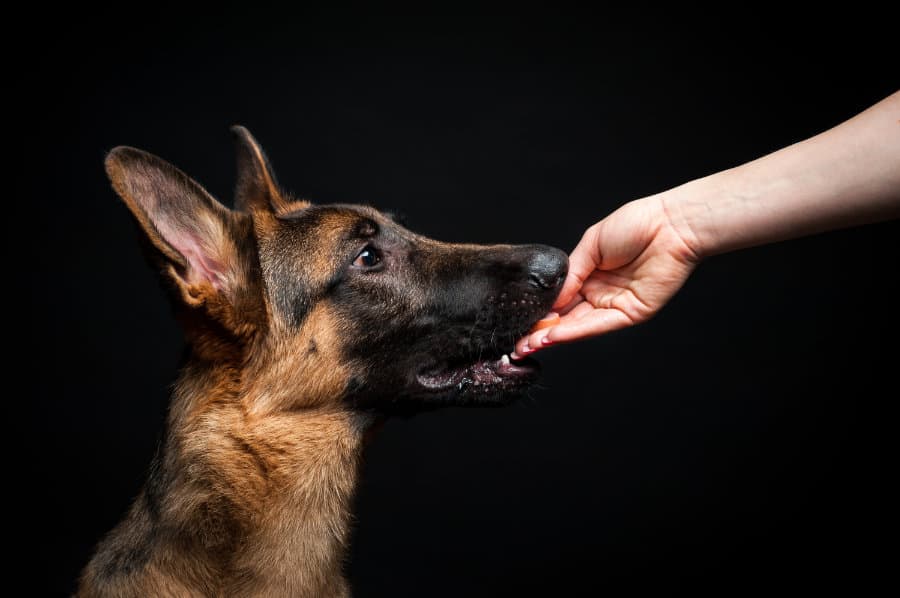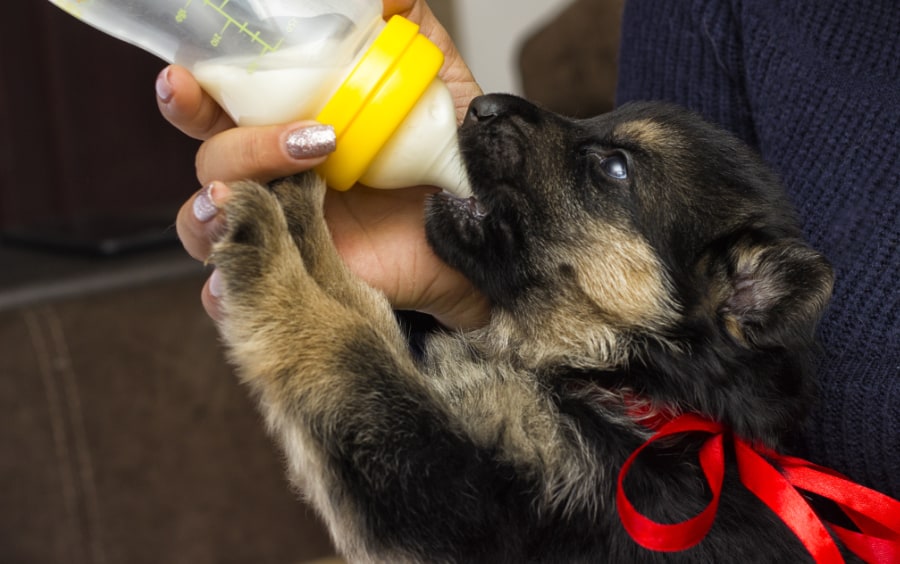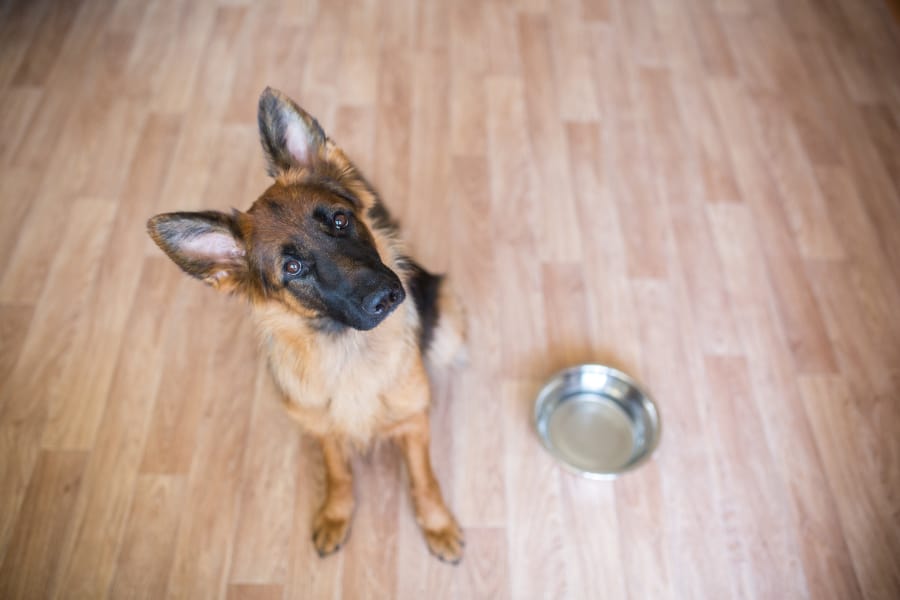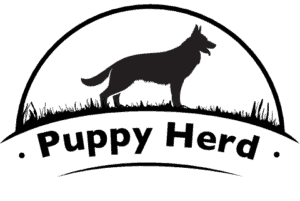Due to the intelligent, devoted and hardworking nature of your German Shepherd, you might want to give them a treat. Also, you might want to feed your puppy something nutritious and different from the norm. Have you thought about giving them cheese, but are not sure if it is safe for your German Shepherd?
German Shepherds can eat cheese, but it should be given to them in moderation. A small piece of cheese can be good for your dog, as it contains a lot of nutrients which your German Shepherd needs.
It is important to know that as much as German Shepherds can eat cheese, there are few exceptions. Some dogs don’t tolerated cheese well. Also, not all kinds of cheeses are suitable for your dog. As you read further, you’ll learn more about these exceptions and you can decide whether to give your German Shepherd cheese.
Should You Give Your German Shepherd Cheese?
Cheese is a great, delicious, and nutritious snack, not just for you but also for your dog. You can give your German Shepherd cheese as a reward during training or on special days. Some people even hide medicine in cheese so that their dogs can take it without hesitation.

Like other dairy products, cheese contains a good amount of nutrients, most of which are needed in your dog’s diet – either young or grown. Some of these nutrients are:
- Vitamins (A and B-complex)
As good as Vitamin A is for your sight, so also it is for your dog’s eyesight. It also helps in the growth of your German Shepherd, while making their skin look healthy and shiny.
B Vitamins have a variety of functions. They are good for your dog as they aid the normal functioning of the nervous system. - Protein
It is used in the production of essential hormones and enzymes. It helps your dog grow, strengthens the immune system, and repairs damaged tissues. - Calcium
Calcium strengthens and aids the formation of the bones and teeth of your German Shepherd. It also aids in clot formation, thereby preventing excessive blood loss when there is an injury. Calcium also contributes to the metabolism of hormones and enzymes. - Essential Fatty Acids
Fatty acids are also very important for the well-being of your dog. Like Vitamin A, it helps to make their skin healthy and shiny. Fatty acids help in cell growth, and they also strengthen the immune system. - Phosphorus
Phosphorus is an essential nutrient that works in combination with minerals like calcium to support the health of your German Shepherd. Phosphorus aids in muscle contraction, which helps in motor functions. It also helps you have a kidney that functions optimally, and this ensures that the kidneys get rid of toxins from the body. - Zinc
Zinc helps in supporting the major body functions. It allows for the normal functioning of the intestinal system, and it also aids in balancing the immune system. If a dog is deficient in Zinc, they can present with a wide range of symptoms like:- Diarrhea,
- Lack of appetite,
- Skin problems like dermatitis,
- Thyroid problems,
- Organ failure like kidney failure,
- Seizures, etc.
As good as cheese is, it should only be given in moderation, as it can also be detrimental to the health of your dog. While some German Shepherds can eat cheese without developing any symptoms, others do not easily get away with eating cheese.
Reasons Why Cheese Can Be Bad for German Shepherds
German Shepherds can indeed eat cheese, but there are reasons why you should avoid giving cheese to your dog, and even if you want to give them, it should be in a very low quantity. While most of them can eat cheese, others can’t, and this is why giving cheese to your German Shepherd still depends on factors like:
- The lactose tolerance of your dog
- The fitness level of your dog
- The health status of your dog
- The type of cheese
It is, therefore, advisable to withhold cheese from your German Shepherd if they are: Lactose intolerant, overweight or have any other health issues.
When Your Dog Is Lactose Intolerant
If your dog is lactose intolerant, then it is a significant reason why you should avoid feeding them cheese. The reason some of these dogs are lactose intolerant is that they do not produce an enzyme called lactase. Lactase helps to break down lactose, which is in cheese and any other dairy product. This inability to digest lactose then causes uncomfortable symptoms.
So, when a dog with lactose intolerance is given a dairy-based product like cheese, they develop severe symptoms such as:
- Abdominal pain
- Vomiting
- Diarrhea
- Bloating
- Flatulence
- Loss of Appetite
It is advisable to altogether avoid giving cheese if your dog is sensitive to lactose.
If Your German Shepherd Is Overweight
Cheese is high in calories. Too many calories can make your German Shepherd, especially the elderly ones, gain weight. Weight gain is not suitable for them; therefore, it is better to give them cheese sparingly. However, if your German Shepherd is already obese, feeding them cheese is not a good option.
Health Challenges Affecting Your Dog
If your dog suffers from health challenges like kidney problems, they should stay away from cheese because of its high sodium content.
When a German Shepherd overeats cheese, the high-fat content of cheese puts them at a high risk of pancreatitis. When a dog already suffers from pancreatitis, too much fat can cause more problems for them. Dogs with pancreatitis suffer from symptoms like:
- Nausea and vomiting
- Abdominal pain
- Fever
- Lethargy, etc.
Not All Cheese is Safe For Dogs
Cheese is good, but not all kinds of cheese are suitable for your German Shepherd. When giving you dog cheese, it is better to stick with the types that are low in calories and salt.
Types of cheeses that are safe for your German Shepherd include:
- Cottage cheese
- Swiss cheese
- Mozzarella
The kinds of cheese that are unsafe for your dog include:
- Cheese high in calories
- Goats cheese: This cheese has a high amount of lactose compared to other cheeses.
- Feta cheese
- Brie
- Blue-veined French cheeses
Blue-veined cheeses are not only higher in salt than other cheeses, but when they are ripe, they produce a chemical called Roquefortine, which can be unsafe for German Shepherds.- Gorgonzola
- Stilton
- Danish Blue
- Roquefort
- Flavored cheeses
If you want to give your German Shepherd flavored cheese then, you might have to know what artificial ingredients and chemicals are in the cheese to be sure that it is safe for your dog.
Also, a lot of cheeses contain garlic and onions, which are bad for your dog, so it is advisable to totally avoid flavored cheese.
Now that the quantity and kind of cheese to feed your German Shepherd has been established, you might want to know the various ways by which you can feed your dog cheese.
Different Ways You Can Feed Cheese to Your German Shepherd
There are various ways by which you can feed your dog cheese. Some of which are: Add to Food, Give as treat, With medicine, Heating
Adding Cheese to Their Food
When you add cheese to their meals, it makes their meals tastier and this, in turn, boosts their appetite. You can either sprinkle grated cheese on their food or add it in small chunks. However, ensure that you don’t add too much cheese to a meal and don’t add it to their meals frequently.
Giving Cheese to Them as a Treat
Cheese can be given to your dog as a “high-value reward” either by you or your dog’s trainer. Giving your dog cheese for good work done can make your dog more motivated and obey commands quickly, as it sees the cheese as a special reward for good behavior. Also, a cube of cheese is enough for a treat because you don’t want them to eat too much cheese.
Putting Medicine in Their Cheese
If you are finding it difficult to give medicine to your German Shepherd, hiding the medicine in a piece of cheese will help. You can either stick the medicine in a piece of cheese or wrap a slice of cheese around the medicine. Many dog trainers and dog owners have used this method, and it has worked.
When using this method, remember to use the kind of cheese that is suitable for your German Shepherd.
Heating the Cheese
If your dog has trouble eating, you can decide to heat the cheese so that it can melt, instead of giving your dog blocks of cheese.
Now that you know that German Shepherds can eat cheese, you might want to know if they can also take milk since both cheese and milk are dairy products
Can German Shepherds Drink Milk?
Just like cheese, milk also contains lactose but in a higher quantity than that in cheese. German Shepherd puppies have a lot of lactase enzyme, which is essential for digesting the milk they get from their mother. It is recommended that they are fed milk only from their mothers or formula specific for puppies.

Some people also give milk to their adult German Shepherds, but is it safe?
As puppies grow older, the lactase produced by their bodies starts to reduce. Most adult German Shepherds no longer have the lactase enzyme, and so it makes it difficult for them to digest lactose in milk. This lack of lactase is why most adult dogs are lactose intolerant. It is, therefore, also essential to look out for lactose intolerance in your dog.
If your German Shepherd is lactose intolerant and you give them milk, especially cow milk, they can present with symptoms just like when they eat too much cheese. They can present with:
- Nausea
- Vomiting
- Bloating
- Abdominal pain
- Diarrhea
- Excessive thirst, etc.
So, if you want to give your dog milk, it is better to stay away from cow milk; however, there are other types of milk that are safe for them. These alternatives to cow milk are safe because they are plant-based, and therefore, they do not contain lactose. They include: Cashew milk, Almond milk, Oat milk and Coconut milk
Foods That German Shepherds Should Not Eat
There are some foods that you should never feed your German Shepherd because these foods are toxic and dangerous to them. So, no matter how tempting it might be, below is a list of the foods that are toxic to German Shepherds.
- Avocado
What makes Avocado a fruit to avoid is its large seed and its high-fat content. Too much fat is bad for your dog as fat can predispose your dog to pancreatitis. Also, when a dog swallows the seed, the seed can cause bowel obstruction, which can be life-threatening. - Chocolate and Coffee
It is advisable to keep these out of reach of your dog because they contain toxic ingredients called methylxanthines, which are dangerous to your dog’s health.
Symptoms of chocolate poisoning include:Vomiting, Diarrhea, Seizures, Fever, Cardiac arrest, etc. - Xylitol
Xylitol is an artificial sweetener that can be found in many foods, such as candies and gums, but it is toxic to German Shepherds. Xylitol toxicity can cause: Low blood sugar, Weakness, Vomiting, Seizures, etc. - Garlic and Onions
Most people believe that it is only fresh onions or garlic that are toxic to dogs; however, it is not only the fresh ones. Any form of garlic or onion, be it cooked, dried, or powdered, are all toxic to German Shepherds. It is therefore advisable to keep them out of their reach. - Seeds or pits of Certain Fruits
Some fruits have seeds or pits which are detrimental to your dog’s health. These fruits include: Pears, Peaches, Apples, Citrus, etc.
Some of these pits contain Cyanide, which is terrible for your dog’s health. - Walnuts
You should not feed walnuts to your dog because it is dangerous to their health. Walnuts can cause intestinal obstruction, and it is toxic to them. When your dog gets exposed to fungi in moldy walnuts, it can cause seizures. - Mushrooms
You should remove any form of mushroom in your dog’s vicinity. It is not all kinds of mushrooms that are dangerous to your dog’s health; however, dogs might get attracted to both the toxic and non-toxic mushrooms.
When a dog has mushroom poisoning, they can present with symptoms like: Vomiting, Diarrhea, Weakness, Excessive salivation, Uncoordinated movements, Seizures, Coma, etc. - Grapes and Raisins
Grapes and raisins are highly toxic to your German Shepherd’s health as they can cause sudden kidney failure and eventual death. - Macadamia nuts
Macadamia nuts are toxic to your German Shepherd. When dogs eat macadamia nuts, they develop symptoms like: Diarrhea, Fever, Vomiting, Leg weakness, etc.
When you notice your dog has eaten one or more of these nuts, it is advisable to contact your dog’s veterinarian immediately. - Alcohol
Alcohol is not good for your dog as it can cause intoxication in them. Signs of alcohol intoxication in dogs is similar to that of humans. They include: Disorientation, Vomiting, Fever, Restlessness, Muscle tremors, Seizures, etc. - Cooked Chicken and Meat Bones
Cooked bones have fewer nutrients than raw bones, and these nutrients are very good for your dog. Also, you shouldn’t feed cooked bones to your dogs as they can cause choking and injury to their digestive tract. Choking can be extremely painful for them, and it can lead to death.
Now that you know what foods your German Shepherd should not eat, it is also interesting to know some of the human foods that they can eat.

Foods That German Shepherds Can Eat
It can be tempting when your dog looks at you while you’re eating that delicious snack, and you might be wondering if you should or should not share with them. Below is a list of some human foods that German Shepherds can have
| FRUITS | VEGETABLES | PROTEIN |
| Bananas | Carrots | Meat |
| Blueberries | Pumpkin | Eggs |
| Coconut | Broccoli | Salmon |
| Mango | Cucumbers | Liver |
| Melon | Spinach | Hazelnuts |
| Watermelon | Lettuce | Peanuts |
| Strawberries | Peas | |
| Pineapples | Sweet Potatoes |
Most dogs love to eat cheese as we do, and your German Shepherd deserves some cheese as a treat. You can also, insert medication in their cheese. Just ensure that at any point you want to give cheese to your dog, provided they are not lactose-intolerant, you give the cheese minimally.
Confirm with your veterinary doctor and make sure your dog does not have any reason not to have cheese. Also, remember that not all kinds of cheese are safe for your German Shepherd. You don’t want your dog to gain weight or get sick.
